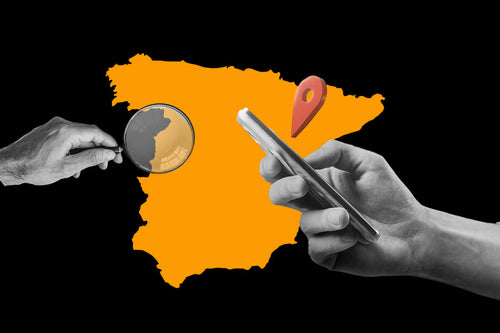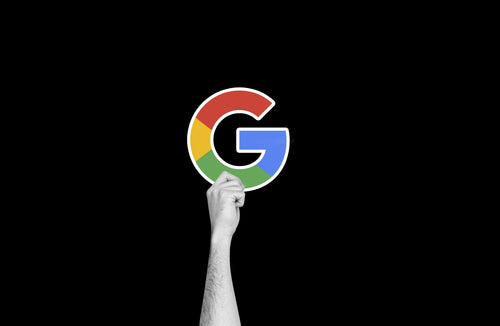If you're from Spain or Latin America, there's a very good chance you landed on this post via Google . In fact, you probably won't go a day without searching for something here : tickets to a show, directions to a place, or the biography of a famous person, to name a few of the endless questions and curiosities that may arise.
Google , the well-known search engine, has been part of our lives for years, but few know that it is actually just one of many other search engines used around the world .
These types of tools, search engines, have become essential in today's fast-paced lifestyle , as they provide us with information in a matter of seconds that, if not for them, would take us minutes, hours, days, or a lifetime to find (if we ever find it at all).
But what is a search engine? How do they work? When did they first appear? Which ones are the most used today?
These are some of the questions/curious issues you may have had today, the answers to which, if we've done this correctly, are in this post you found via a search engine. So, let's get to it...
What is a search engine?
Can you imagine having to manually visit every web server to find the information you need? That's assuming you had a list of all the public domains in the world, which, logically, you don't.
To accomplish this impossible task for a human, search engines emerged . These are computer systems that compile information stored on web servers and present it to the user on a results page. This page will display all the websites that, according to that search engine, answer the user's query.
Basically, a search engine would be like the librarian you ask for a specific book, and he searches all the shelves for it while you comfortably wait for him to return.
When did search engines appear?
The first search engines appeared in the early 1990s due to the need to compile internet content, which continued to grow with the emergence of more and more websites.
Thus, the first search engine proper was Wandex , developed in 1993 by an MIT scientist who sought to quantify the size of the Internet. A year later, in 1994, Aliweb was announced, a much more advanced search engine than the previous one, as it was capable of reading and interpreting the content of many websites in real time.
These search engines were the seed of Yahoo, Google and Bing , three of the most used search engines in the world today (although the search engine created by Larry Page and Sergey Brin in 1997, Google, clearly takes the cake).
How does a search engine work?
A search engine uses what are known as spiders or "bots," computer programs that automatically and continuously access and crawl the pages that make up a website (called URLs), identify their content based on the keywords on that page, and index it .
Thus, when a user enters a query, the search engine will show the index pages that, based on its algorithm, provide an answer to that query. The algorithm is, in fact, the heart of any search engine , since the more advanced it is, the more accurate and satisfactory the answers it gives the user.
For example, a good algorithm will show you, for the search query "rent a car," car rental companies (prices, models, dates, etc.) at the top of the search results. A poor algorithm, on the other hand, will show you results about the history of cars, so to speak, at the top of the search results.
The latter is what SEO experts call "search intent" : offering results that are as targeted as possible to the user's query . In the example above, the person searching for "rent a car" has no intention of learning about the history of the automobile.
Types of search engines
From a technical point of view, we can talk about three types of search engines , which are:
Hierarchical search engines
A hierarchical search engine would be Google, since these search engines collect and store information from web pages (generally making a copy of them) and then display it to the user based on their query.
Directories
Unlike hierarchical search engines, directory search engines don't crawl websites or store information. Rather, they are a collection of links sorted by category , not by relevance to the user's query.
Metasearch engines
Metasearch engines do not have their own databases; instead, they forward the query to other search engines and then analyze the results they provide.
Major search engines in the world
We start with the undisputed king of search engines: Google held a market share of more than 91% worldwide in 2022 , according to data from a Statcounter study.
One of the reasons for this search engine's dominance is the quality of its algorithm, which is constantly updated to offer increasingly refined search results (the search intent we mentioned earlier). This makes it the search engine of choice for SEO agencies and paid media professionals who run search advertising campaigns.
Bing
Google's main direct competitor is the search engine owned by another tech giant: Microsoft. Its international usage share is approximately 3%, but in the English-speaking market, Bing accounts for a third of searches . One of the attractions of Microsoft's search engine is its rewards system, a points program that can be earned when making purchases through its search engine.
Yahoo!
Yahoo was the most used search engine in the 1990s, although today it has a smaller market share than Bing and, of course, Google (1.5%). Yahoo feeds Bing, so the results between the two search engines are very similar.
Although it is no longer used as much these days as it was when it first emerged, it still retains its "nostalgic" audience who have used it all their lives.
Baidu
The constant clashes between Google and the government make it unlikely that Page and Brin's search engine will ever overtake the "Chinese Google," Baidu, which represents a 75% market share in that country . If you want to focus on the Chinese market, Baidu is the search engine you're looking for (excuse the redundancy). Its interface design is similar to the American search engine, although with one clear difference: it's in Mandarin Chinese.
Yandex
Without leaving Asia, Yandex is the most used search engine in Russia, with a 60% market share within the federation . It also has a significant presence in former Soviet republics, such as Ukraine, Kazakhstan, and Belarus. Although it was originally designed for Russian-speaking users, it now has versions in English and other languages. However, its international market share hovers around 1%.
Ecosia
Ecosia is a search engine launched in 2009 with a laudable goal: to plant one billion trees by 2025. That's right, this ecological engine donates 80% of its revenue to non-profit organizations involved in global reforestation.
It has its own algorithm, but, like Yahoo, it uses Bing services to deliver results to its 125 million monthly users. Furthermore, this search engine doesn't store information about user behavior to then serve them personalized ads. Recommended for those who value privacy, the planet, or both.
DuckDuckGo
Finally, we talk about another search engine that values user privacy the most: DuckDuckGo, the tracker that doesn't track you . It emerged in 2008, but in recent years it has gained more relevance in the market, so much so that in 2022 it reached a market share of almost 2.4% in the United States.
Search engines and digital marketing
A tool that gives visibility to websites is, by all accounts, essential in digital marketing.
Thanks to search engines, users or potential customers can find the product or service they're looking for in a matter of seconds . They don't even have to wander around the mall: a simple search query is all it takes.
However, having a beautiful website isn't enough to appear at the top of a search engine results page. In fact, this is where one of the most important teams in a digital marketing agency comes in: SEM experts.
SEM, deciphering the search engine algorithm
SEM is an acronym that stands for Search Engine Marketing, and refers to marketing done through search engines . Basically, it involves planning and implementing strategies both on and off a website to ensure it appears in the best possible position in search engines.
An SEM team is divided into two subteams, the PPC experts and the SEO experts , each with different roles but the same goal: to please the search engine algorithm.
PPC or pay per click
PPC, or "pay per click," involves paying a search engine to display a page when a user types a search query . Typically, the search engine charges for each click on the ad. In the old days, this would have been equivalent to paying a television network to show your brand's ad.
Pay-per-click is a good option when you have a large budget to invest in this type of campaign. Although other factors come into play, the more money you spend, the better your search results are likely to be. (Again, there are more factors to consider.)
For example, if you sell high-heeled shoes, the page where you display all your high-heeled shoes will appear as an ad when someone searches for "high-heeled shoes." As you can imagine, the flip side of PPC is that with little or no investment, there's no visibility . Does this mean that websites without an advertising budget will never appear in a search engine?
SEO or organic positioning
SEO refers to organic, natural positioning, that is, positioning achieved without having to pay search engines. Among their various tasks, SEO experts are responsible for modifying a page's technical and content aspects to make it optimally satisfy the user's search query. They also work on local SEO to ensure physical businesses appear on Google Maps.
In this way, thanks to these actions, the search engine algorithm "rewards" that page by showing it in higher positions. Returning to the previous example, with SEO, your high heels page will appear first in organic results, that is, those shown after the ads.
Since it doesn't depend on advertising investment , unless a meteorite falls or the internet disappears from the world, your high heels page will continue to appear without paying a cent to the search engine, as long as you have an SEO agency that knows what actions will keep you on the podium.
Is PPC or SEO better for your business?
Over the 10 years we've been with our digital marketing agency, we know that PPC and SEO can and should go hand in hand . A strategy based solely on one of them isn't optimal, as PPC and SEO feed off each other:
- The PPC team doesn't typically deal with a website's technical errors —errors that the user doesn't see, but search engine spiders do. The technical SEO team resolves them , and this benefits both your paid and organic results.
- With PPC and SEO, you'll increase your visibility, as you'll occupy more than one position on the results page : users will see your paid result first, followed by your organic result below.
- Some users never click on an ad , but those same users always click on organic results…
There are more reasons why it's advisable to combine a PPC and SEO strategy, but one thing is already clear: if you want to do search engine marketing, you need a professional marketing agency like Maktagg .
Do you want to appear at the top of Google?
Take the first step by requesting an SEO quote or filling out the form in less than a minute.




 https://maktagg.com/blogs/blog-marketing-digital
https://maktagg.com/blogs/blog-marketing-digital










